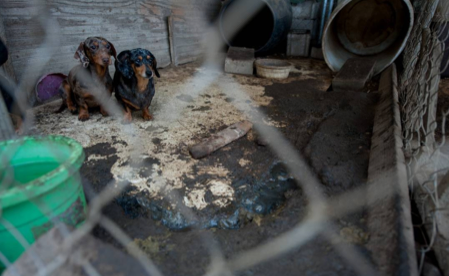A report released last week by the Humane Society of the United States (HSUS) suggests that the American Kennel Club (AKC) is actively working to suppress anti-puppy mill legislation and alleges the AKC has allowed individuals who don’t provide the legal amount of minimum care to register their litters with them.
Among the most potentially inflammatory charges in the report:
· The AKC asked its supporters to oppose West Virginia Senate Bill 406, which would limit owners from having more than 50 intact dogs.
· The AKC encouraged its members to oppose Louisiana House Bill 163, a measure requiring breeders to meet “standard care and conditions” for their animals as well as preventing breeding facilities from keeping dogs in stacked, wire-floored cages.
· The AKC asked Shelby County, Tennessee, residents to request time and temperature restrictions be removed in an ordinance designed to protect pets from being left unattended in hot cars.
· The AKC opposes USDA APHIS 2011 0003 — national legislation prohibiting sales of dogs and puppies via the Internet to buyers, sight unseen.
The AKC has not issued an official response to the HSUS report. These statements, however, regarding the above legislation could be found on their web site:
Portion of AKC’s comments regarding West Virginia Senate Bill 406:
“Laws that limit animal ownership are ineffective, arbitrary, and do not address the underlying issue of responsible ownership. Limiting the number of animals a person may own will not automatically make them a better owner.”
Portion of AKC’s comments regarding Louisiana House Bill 163:
“The bill will infringe on the rights of dog owners by further limiting the number of dogs an individual may own and requiring most breeders to adhere to vague and arbitrary care and conditions requirements.”
And:
“Owners will not be able to take advantage of the efficiencies that [wire crate] stacking allows, and may be forced to sell or relinquish dogs or to purchase new facilities to comply with the requirement. Additionally, AKC-affiliated clubs will face detrimental fiscal impacts by being forced to find larger facilities to help their exhibitors comply with the prohibition, or endure far fewer entries at their events.”
Portion of AKC’s comments regarding Tennessee law:
“These arbitrary temperature and time restrictions are unwarranted and ineffective for several reasons. A dog negligently left in an enclosed vehicle in direct sunlight on a hot day can suffer injury or death in far less than 60 minutes.”
Portion of AKC’s comments regarding USDA APHIS:
“AKC recognizes that when the time comes for a puppy to be transferred to its new owners, a meeting at the breeder’s premises is not always possible… Puppy buyers may not be able to personally go to the breeder’s facility to get their new puppy. Instead, they may have to turn to air shipping as an affordable and more convenient way to get their puppy home.”
If you have strong feelings about the USDA APHIS proposal, you can help determine its outcome. The rule is still undergoing evaluation, and both HSUS and the AKC — and DogTime — encourage individuals to submit comments for review before July 16, 2012.









